The list of top ten web application vulnerabilities has been updated for the first time since 20134/28/2017 The release candidate of OWASP Top 10 vulnerabilities of web applications for 2017 has been published on the OWASP website. Injections (like SQL injection or code injection) are still #1 threat for web apps, no changes here since 2013.
0 Comments
There is interesting phishing method that is described here. It is also called homograph attack. Many English (Latin) domain names can be represented by Russian (Cyrillic) letters which look almost the same but their character codes (Unicode) are different. So you think you are seeing the legitimate domain name like apple.com, but in reality it is fake name which looks exactly the same as the original name. The only thing I did not fully understand is how they represent latin letter "l" (lower case "L") as there is no similar letter in Cyrillic. I guess they just use "1" (number "one") instead of "l" but it still can be recognized?
a - Cyrillic letter "a" р - Cyrillic letter "r" р - Cyrillic letter "r" 1 е - Cyrillic letter "e" . с - Cyrillic letter "s" о - Cyrillic letter "o" м - Cyrillic letter "m" This is cool. They say it's available by the end of 2017! I would like to buy one!
This essay was originally published in VentureBeat When I recently discovered a draft of new guidelines for password management from NIST (the National Institute of Standards and Technology), I was amazed about the number of very progressive changes they proposed.
Although NIST’s rules are not mandatory for nongovernmental organizations, they usually have a huge influence as many corporate security professionals use them as base standards and best practices when forming policies for their companies. Thus, another fact I was surprised about was a lack of attention to this document, finalized March 31, from both official media and the blogosphere. After all, those changes are supposed to affect literally everyone who browses the Internet Here is a quick look at the three main changes the NIST has proposed: No more periodic password changes. This is a huge change of policy as it removes a significant burden from both users and IT departments. It’s been clear for a long time that periodic changes do not improve password security but only make it worse, and now NIST research has finally provided the proof. No more imposed password complexity (like requiring a combination of letters, numbers, and special characters). This means users now can be less “creative” and avoid passwords like “Password1$”, which only provide a false sense of security. Mandatory validation of newly created passwords against a list of commonly-used, expected, or compromised passwords. Users will be prevented from setting passwords like “password”, “12345678”, etc. which hackers can easily guess. So why haven’t we seen any coverage of the changes considering how much of a departure they are from previous advice — and considering every average user is going to be affected? I think there are several reasons for the radio silence. First, many people now suffer from password fatigue. Users are tired of and disappointed with password rules. They are forced to follow all these complex guidelines, remember and periodically change dozens or hundreds of different passwords, and yet we still hear about an enormous number of security breaches caused by compromised passwords. Users, especially less sophisticated ones, seem to have reconciled themselves to this situation and perceive it as a matter of course, so no one believes it can be improved. Second, we’ve seen a widespread introduction of MFA (multi factor authentication), also known as two factor authentication, which supposedly pushes the password problem to the background. Let me remind you that unlike traditional authentication by password (“something you know”), MFA requires a second factor like “something you have” (hardware token, mobile phone) or “something you are” (usually biometric such as fingerprint or face recognition). Indeed, if my account is protected by a reliable second factor such as a one-time code texted to my iPhone or generated on demand by my Yubikey, why should I care about passwords anymore? I can just use the same password I remember on every account that is protected by MFA. Unfortunately, this assumption is only partially true because MFA is reliable only when both factors are secure. Finally, more diligent users these days have access to a large variety of password management software, both commercial and freeware, which can significantly improve user experience and security. With password management software, I only need to remember one password that unlocks my personal “password vault”, so I don’t have to worry about all the complexity rules or frequent password changes; my password manager will generate, store, and enter a secure random password every time I need one. However, there are still scenarios when we cannot use password manager (unlocking our phone, computer, or door, for example). So are these changes NIST is proposing still relevant and important? Of course they are. Despite the desperate attempts of many security startups to introduce new authentication methods, passwords are here to stay for awhile, if not forever, and millions of people around the world will appreciate even small improvements in user experience and security. This essay was originally published in VentureBeat Any attempt to reanimate plastic card will eventually fail. This is "walking dead" payment technology, even if seasoned by hi-tech add-ones such as E-ink display or fingerprint reader.
First commercial true flying car that can both drive on the road and hit the skies will be available in 2020.
AeroMobil is powered by an internal combustion boxer engine with a FADEC digital control unit. Additional power and altitude capability have been delivered using the very latest turbocharging techniques and systems. The engine has been adapted to achieve a significant reduction in weight over traditional aerospace engines while delivering the durability and reliability necessary to meet the needs of modern pilots and drivers. During flight mode operation, AeroMobil has an available power of 224 kW (~ 300 hp), delivered to the propeller through bespoke transmission. On the road, AeroMobil is powered by a hybrid electric system. The generator is the same engine that powers the vehicle in the air; this in turn powers a pair of electric motors located in the front axle. We are all aware and afraid of physical and network security vulnerabilities and implementing all kinds of controls to protect against those attacks, but how can we stop broadcast signal? I guess just by turning off the TV or switching to Internet TV (that's what I did already a long time ago).
A new attack that uses terrestrial radio signals to hack a wide range of Smart TVs raises an unsettling prospect—the ability of hackers to take complete control of a large number of sets at once without having physical access to any of them.The proof-of-concept exploit uses a low-cost transmitter to embed malicious commands into a rogue TV signal. That signal is then broadcast to nearby devices. It worked against two fully updated TV models made by Samsung. By exploiting two known security flaws in the Web browsers running in the background, the attack was able to gain highly privileged root access to the TVs. By revising the attack to target similar browser bugs found in other sets, the technique would likely work on a much wider range of TVs. I hope this new security feature will not be required to withdraw cash from ATM. I guess you know what I am thinking about...
The owner of the Holiday Inn and Crowne Plaza hotel brands has disclosed that payment card-stealing malware has struck about 1,200 of its franchisees' properties. Headquartered in Denham, U.K., IHG operates more than 5,000 hotels across nearly 100 countries. Here is the list of Hotels in Dallas, TX that have been affected by the credit card data breach: Crowne Plaza
Dallas Downtown 1015 Elm Street Dallas TX 75202 September 29, 2016 December 29, 2016 Holiday Inn Express Dallas Central Market Center 1521 Inwood Road Dallas TX 75247 September 29, 2016 November 14, 2016 Holiday Inn Express Dallas East - Fair Park 8703 East RL Thornton Freeway Dallas TX 75228 September 29, 2016 October 18, 2016 Holiday Inn Express Dallas/Stemmons Fwy(I-35 E) 2287 West Northwest Highway Dallas TX 75220 September 29, 2016 December 29, 2016 Holiday Inn Express North Dallas at Preston 6055 LBJ Freeway Dallas TX Passwords are controversial. They are convenient and unpleasant, secure and dangerous at the same time, depending on situation and level of user knowledge.
Discussion about the new security features and future of password authentication in my essay published by VentureBeat. |
Books
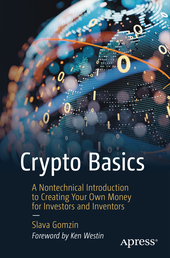 Crypto Basics Crypto Basics
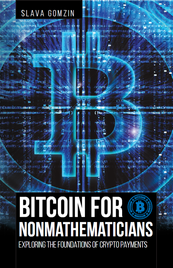 Bitcoin for Nonmathematicians: Exploring the Foundations of Crypto Payments Bitcoin for Nonmathematicians: Exploring the Foundations of Crypto Payments
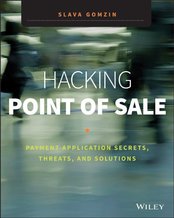 Hacking Point of Sale: Payment Application Secrets, Threats, and Solutions Hacking Point of Sale: Payment Application Secrets, Threats, and Solutions
Recent Posts
Categories
All
Archives
March 2023
|
Slava Gomzin

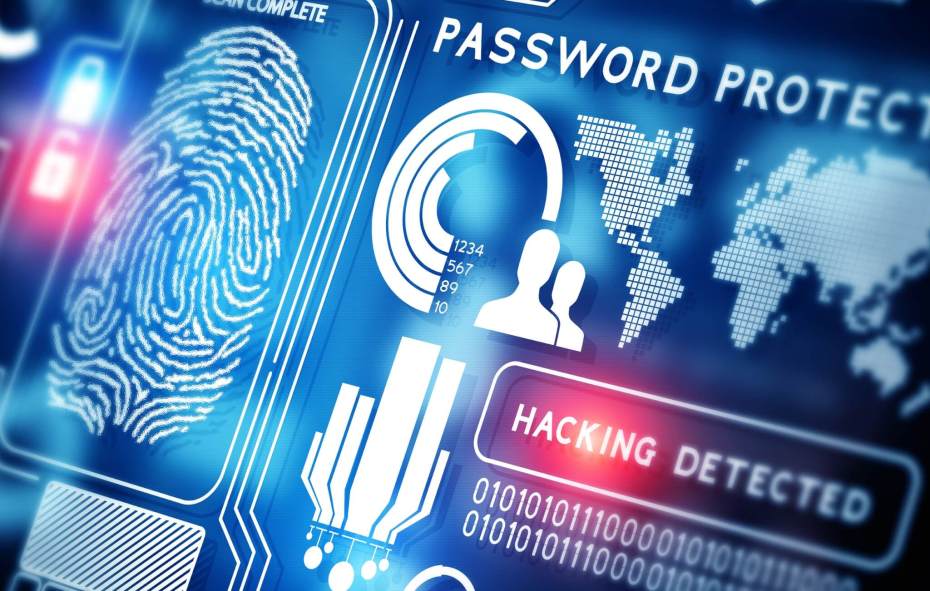
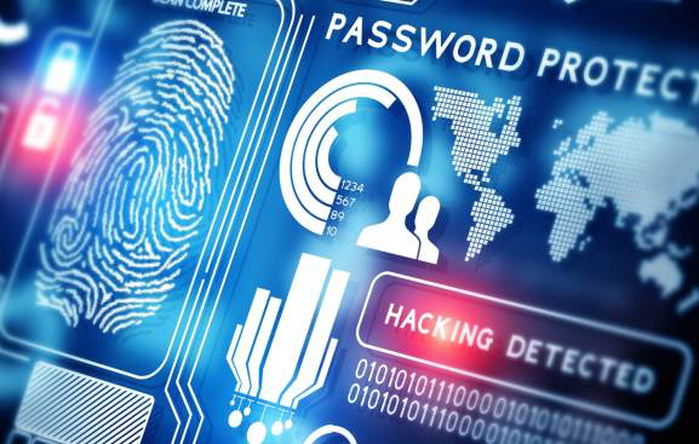




 RSS Feed
RSS Feed
